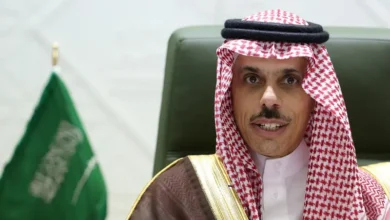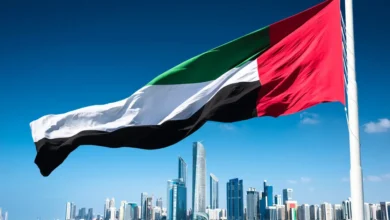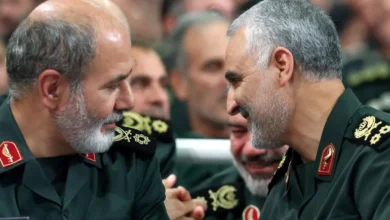Libya’s premier under fire for reported role in normalisation with Israel

Libya’s internationally recognised prime minister has come under scrutiny for his reported role in attempting to normalise relations with Israel, analysts have said, with some calling for his dismissal.
Abdul Hamid Dbeibah, the head of the Tripoli-based Government of National Unity (GNU), sacked Foreign Minister Najla al-Mangoush after her meeting with her Israeli counterpart Eli Cohen in Rome last week was leaked to the media. She has since fled the country.On Sunday evening, a statement from the Israeli foreign ministry said al-Mangoush and Cohen had discussed ways to have “great relations” between their nations.
The meeting sparked protests Sunday night in Tripoli and other cities, with demonstrators blocking roads with burning tyres and waving Palestinian flags.
Libya’s rival parliament in the east, which rejects the GNU, said on Sunday it would hold hearings into the meeting while the Tripoli-based Presidency Council asked Dbeibah for clarification and the High State Council, another important body, condemned it.
Scapegoat?
Under a 1957 law in Libya, it is illegal to have formal relations with Israel. Analysts say al-Mangoush has taken the fall for decisions made by Libya’s rival leaders, linking the meeting with the United States’s efforts to pressure more Arab countries to normalise ties with Israel.
Libya expert Anas El Gomati of the Sadeq Institute said Dbeibah, his rival military strongman Khalifa Haftar and the eastern-based parliament that backs him “have used Libya’s first female foreign minister as the fall person for decisions they all partook in”.
“It’s not about politics, it’s blatant scapegoating,” El Gomati told AFP.Last January, Dbeibah met with US CIA director William Burns in Tripoli to discuss normalising relations with Israel, two Libyan officials told The Associated Press.
He gave initial approval for joining the US-brokered Abraham Accords but was concerned about public backlash in a country known for its support for the Palestinian cause, one of the officials said.Omar Turbi, a former adviser to Libya’s transitional government after the overthrow of Muammar Gaddafi, said: “Dbeibah needs to go and he knows that he’s been under pressure in the last couple of weeks.”
Dbeibah is “squarely responsible” for the meeting, Turbi said, adding that the PM had met with the Israeli Mossad even before speaking to Burns, and “continued to do so with frequency”.
“The US should have better sense than trying to normalise a relationship between Libya and Israel,” he told Al Jazeera, describing Libya as “dysfunctional”.










